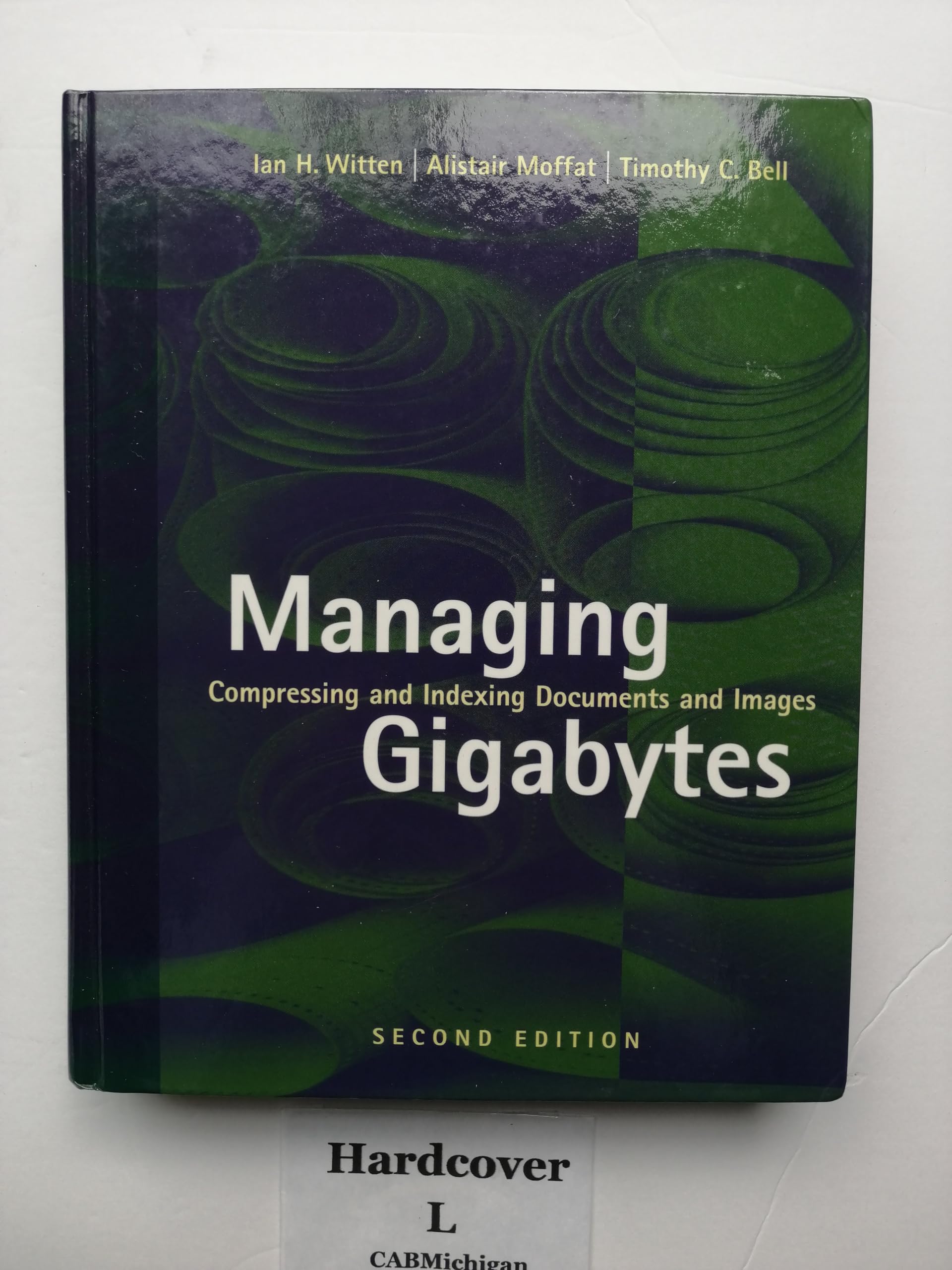Found in 4 comments on Hacker News
PaulHoule · 2021-06-18
· Original
thread
This book has a nice treatment of that kind of compression:
https://www.amazon.com/Managing-Gigabytes-Compressing-Multim...
For instance you might be keep track of facts like
the word "the" is contained in document 1 the word "john" is contained in document 1 the word "the" is contained in document 2 ... the word "john" is contained in document 12
sajid · 2011-12-21
· Original
thread
I recommend reading 'Managing Gigabytes' by Witten, Moffat and Bell:
http://www.amazon.com/Managing-Gigabytes-Compressing-Multime...
dejv · 2010-05-04
· Original
thread
You can take a look on Managing Gigabytes (http://www.amazon.com/Managing-Gigabytes-Compressing-Multime...)
It is nice book, but might be little bit outdated.


https://www.amazon.com/Managing-Gigabytes-Compressing-Multim...
https://www.amazon.com/Information-Retrieval-Implementing-Ev...
https://www.amazon.com/Introduction-Information-Retrieval-Ch...